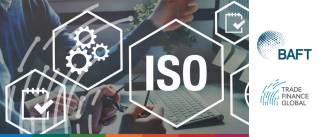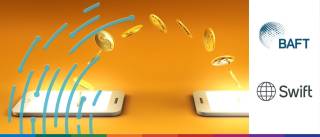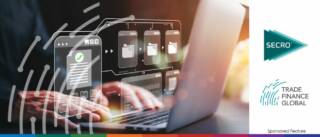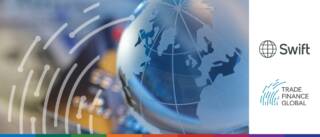Discover how ISO 20022 can reshape the world of trade finance and what banks need to do to prepare for a global adoption.
The Bankers Association for Finance and Trade (BAFT), a global industry association for international transaction banking, has released a whitepaper, “ISO 20022 Migration: Lessons Learned”, highlighting some of the critical lessons its members have learned while implementing this ‘new language of payments’.
2024 is set to bring about significant changes in finance and banking. Driven by a convergence of cutting-edge technologies, the industry-wide transition to ISO 20022, the rise of digital currencies, and innovative AI-powered solutions, the year holds promise for considerable advancements and enhanced alignment between fintech and traditional financial institutions.
In order to communicate with each other, banks use a messaging system called SWIFT (Society for Worldwide Interbank Financial Telecommunication), which provides a standardized and secure way to exchange information. There are several different types of SWIFT messages that banks use for various purposes.
In a collaborative effort with BNY Mellon, Deutsche Bank, and four electronic Bills of Lading (eBL) platforms, Swift has successfully trialled an interoperability solution.
The ISO 20022 format is a set of data and messaging that is integrated into an instant payment or any other cross-border transaction.
At the 49th Annual Trade and Forfaiting Conference held at ITFA Abu Dhabi, TFG’s Deepesh Patel spoke with Sean Edwards, Chairman of the International Trade and Forfaiting Association (ITFA), about some of the key themes emerging throughout the conference in a quickfire session.
The panel’s moderator, Tom Zschach, Chief Innovation Officer at Swift was joined by Kelly Switt, Global Head of Intelligent Edge Business Development at Red Hat; John Overton, CEO at Kove; Vivek Agarwal, Head of Financial Services Solutions at C3 AI; and Johan Bryssinck, AI Programme and Shared Services at Swift.
For centuries, trade documentation has been a time-intensive and resource-demanding process, involving a multitude of stakeholders and a deluge of paperwork. Central to this process is the bill of lading, the most critical document in international trade.
London – 20th September 2023 – CBI is an Italian company that develops digital services – including open banking and open finance services – for the financial industry and the… read more →
In this episode of Trade Finance Talks, TFG’s Deepesh Patel was joined by Shirish Wadivkar, Global Head – Wholesale Payments & Trade Strategy at Swift, to uncover the conference’s core themes, the latest Swift initiatives, and strategies to prepare for Sibos 2023.
The FIT Alliance, formed of BIMCO, DCSA, FIATA, ICC, and Swift, has initiated the “Electronic Bill of Lading Declaration” to enhance the efficiency, reliability, sustainability, and security of global trade through the use of electronic Bills of Lading (eBLs).
ICC and Swift, the global leader in secure financial messaging services, have unveiled the first application programming interface (API) industry standards for bank guarantees and standby letters of credit. The… read more →
In the ever-revolving landscape of trade payments, a notable trend is gaining momentum as the global financial industry embraces ISO 20022 – a data-rich and interoperable universal messaging format set to replace the legacy Message Text (MT) that has prevailed for years.
According to a study released on Wednesday by the US-based Atlantic Council think tank, 130 nations, representing 98% of the global economy, are currently exploring digital variants of their currencies.… read more →
 Australia
Australia Hong Kong
Hong Kong Japan
Japan Singapore
Singapore United Arab Emirates
United Arab Emirates United States
United States France
France Germany
Germany Ireland
Ireland Netherlands
Netherlands United Kingdom
United Kingdom















